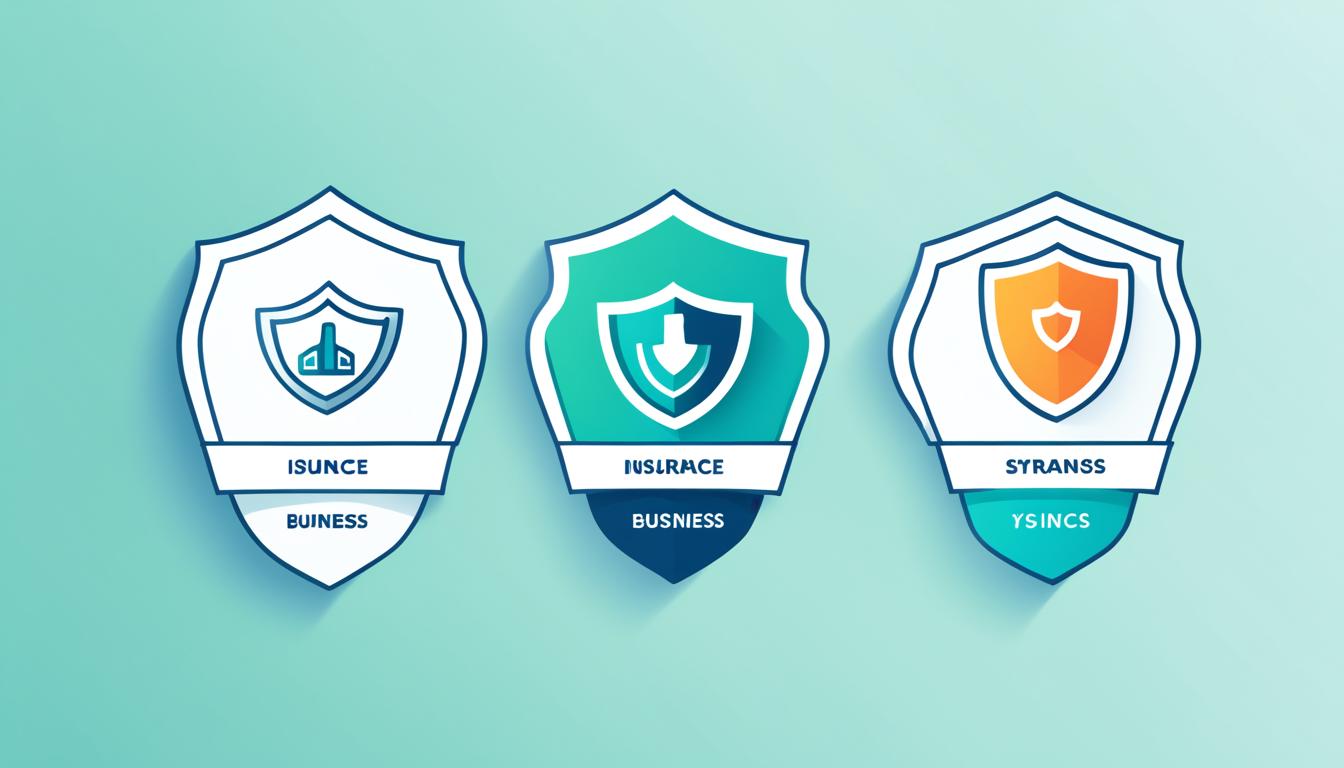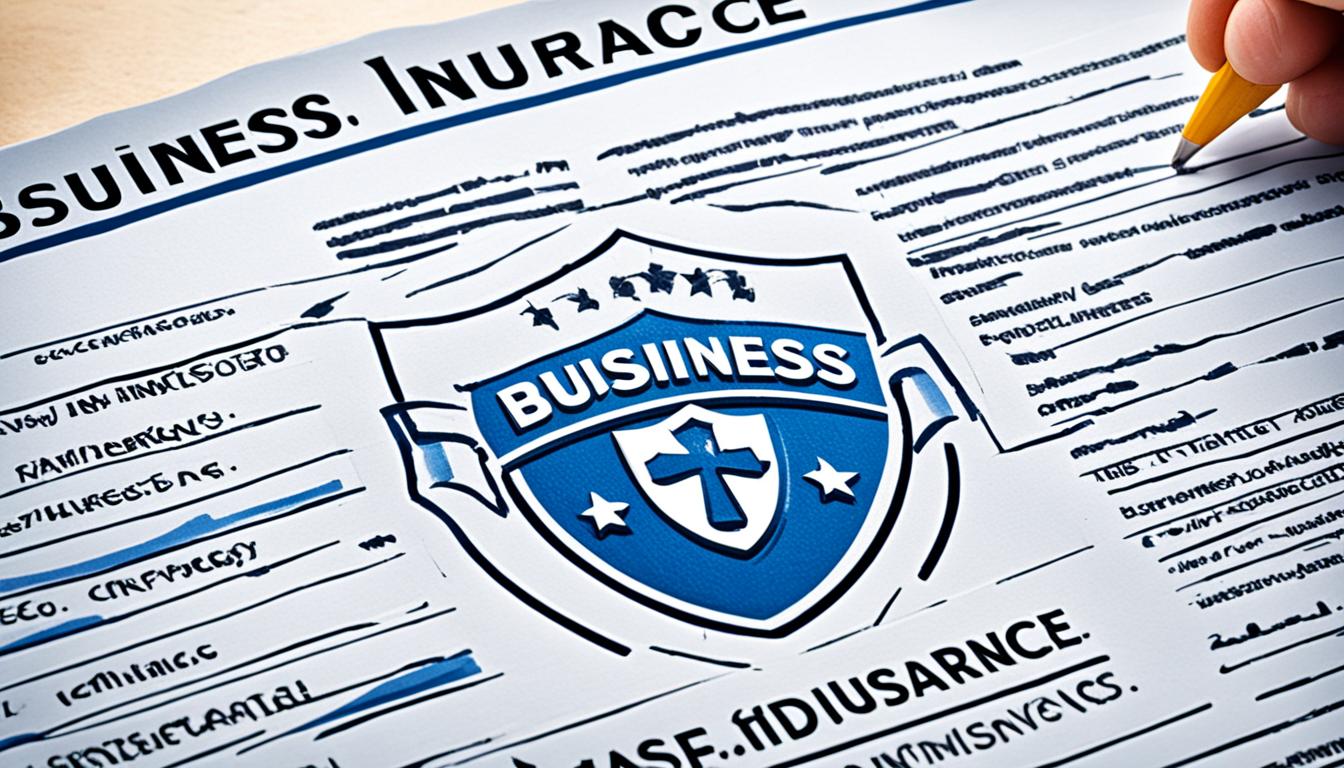Three small business insurance providing essential coverage options for comprehensive protection
As a small business owner, it’s key to protect your assets and operations from risks. Small businesses face many challenges, like liability claims, property damage, and employee injuries. Luckily, there are three main insurance types that offer broad coverage to keep your business safe and give you peace of mind.
General liability insurance is vital for small businesses. It covers claims of bodily injury, property damage, and advertising injury from others. Property insurance protects your physical assets, like your office, equipment, and inventory, from fires, theft, or natural disasters. Workers’ compensation insurance pays for medical bills and lost wages if employees get hurt at work, making sure your team is safe and your business follows the law.
It’s crucial for small businesses to have enough insurance. Without it, you could face big financial losses, like legal fees, repair costs, or even closing your business. By getting these three key insurance types, you can protect your small business and focus on growing and succeeding.
Key Takeaways
- General liability insurance protects against third-party claims of bodily injury, property damage, and advertising injury.
- Property insurance safeguards your physical business assets, such as your office space, equipment, and inventory.
- Workers’ compensation insurance covers medical expenses and lost wages for employees injured on the job.
- Maintaining adequate insurance coverage is crucial to protect your small business from potential risks and liabilities.
- These three essential insurance types can provide comprehensive protection for your small business.
Understanding the Importance of Small Business Insurance
As a small business owner, you face many risks that could harm your business. These risks include liability claims, property damage, and employee injuries. That’s why having small business insurance is key to protecting your business and securing your future.
Protecting Your Business from Potential Risks
Small businesses can face many risks, such as:
- Liability claims from accidents or injuries on your property
- Property damage from natural disasters, theft, or vandalism
- Employee injuries leading to high medical bills and lost work
The right small business insurance coverage acts as a safety net. It helps protect your company from these risks and their financial fallout.
The Consequences of Being Underinsured
Being underinsured can lead to big financial losses and legal problems. Without enough coverage, one incident could shut down your business. It would take away from your main goals and threaten your business’s future.
“Small business owners who are underinsured put their entire livelihood at risk. It’s crucial to have the right coverage in place to protect your company from the unexpected.”
Knowing the importance of small business insurance and the risks your company faces helps you protect your business. It ensures you’re ready to face challenges head-on.
General Liability Insurance: A Cornerstone of Protection
As a small business owner, you face many risks that could harm your business. Having general liability insurance is crucial. It protects you from the costs of claims from others.
General liability insurance covers claims of bodily injury, property damage, and advertising issues. It doesn’t cover auto or aviation accidents and employee injuries. If a customer gets hurt on your property, or if your business is accused of spreading false information, this insurance can help pay for medical bills, legal fees, and court costs.
“Without general liability insurance, a single third-party liability claim could bankrupt a small business. This coverage is key to protecting your finances and keeping your company strong for the future.”
With general liability insurance, you can rest easy knowing your business is protected. It’s what keeps you afloat during tough times. It’s a must-have for any small business insurance plan.
General liability insurance is not just a luxury, it’s a need for small businesses today. It’s part of a good plan to manage risks. Protect your business’s future by adding this coverage to your strategy.
The Three Essential Insurance Coverages for Small Businesses
For small businesses, three insurance coverages are key for full protection: small business liability insurance, small business property insurance, and small business workers’ compensation insurance. These coverages handle different risks, forming a strong base for your business’s financial safety.
Small Business Liability Insurance
This insurance is crucial for defending against claims of injury or damage to others. It covers legal costs, settlements, and judgments. This keeps your business financially stable when unexpected events happen.
Small Business Property Insurance
This insurance protects your business’s assets like buildings, equipment, and stock. If damage or loss occurs, it helps you recover financially. This ensures your business can keep running and your investment is safe.
Small Business Workers’ Compensation Insurance
This insurance covers medical bills and lost wages for employees hurt at work. It meets legal needs and shows you care about your workers’ health. This creates a safe and positive workplace.
These three insurance types create a strong defense for your small business. They protect against many risks, ensuring your business’s success and stability over time.
Additional Coverage Options for Comprehensive Protection
While the three main insurance coverages – general liability, property, and workers’ compensation – are key for your small business, there are more options to consider. These extra policies can cover risks unique to your business. They make sure your insurance covers everything you need.
Small Business Commercial Auto Insurance
If your business uses vehicles, small business commercial auto insurance is a must-have. It covers your cars and drivers for accidents and claims. This way, your business is ready for any car incidents during work.
Small Business Professional Liability Insurance
Small business professional liability insurance is also vital. It shields your business from claims of mistakes or not doing your job well. If you offer services like consulting or legal advice, this coverage protects you from lawsuits and financial losses.
What coverages you need depend on your business type, location, and how you operate. Always check your specific needs and talk to an insurance expert. This ensures you get the additional small business insurance coverage you need for full protection.
three small business insurance: Choosing the Right Provider
Choosing the right insurance for your small business is key. It’s a big decision that affects how well your business is protected. Let’s look at what to think about when picking an insurance provider.
First, make sure the insurer is financially strong. You need a company that can pay out claims when you need them. Check their ratings from trusted agencies to see if they’re reliable.
Then, consider the range of coverage they offer. Small businesses have many risks, so you need a plan that covers everything. Look for a provider with many policies, like liability, property, and workers’ comp, to keep your business safe.
Customer service is also crucial. You want a provider that answers quickly, knows what they’re talking about, and supports your business. Read reviews online and ask other business owners for advice to find a good insurer.
Don’t forget about the cost, but don’t let it be the only thing you look at. You want good coverage at a fair price. Compare quotes from different providers to find the best deal for your business.
By looking at these factors, you can pick an insurance provider that fits your business well. The right insurance partner is key to your business’s success.
The Process of Getting Insured: A Step-by-Step Guide
Getting the right small business insurance is key to protecting your company. It might seem hard, but with a clear plan, you can make sure your business is covered. Let’s look at the main steps to get your business insured.
Assessing Your Business Risks
The first step is to figure out the risks your company might face. Think about your industry, where you are located, and what you do every day. This helps you spot possible dangers. Knowing your business risks helps you pick the right insurance to protect your business.
Obtaining Quotes and Comparing Policies
After understanding your small business insurance needs, get quotes from different providers. Look at what they offer, their limits, and prices to find the best deal for your company. An experienced insurance expert can help you make the right choice.
Completing the Application and Providing Documentation
The last step is to fill out the insurance application fully and provide all needed documents. This is important for a quick and successful approval. You’ll need to share details about your business, its activities, and any past claims.
By following this guide, you can confidently go through the small business insurance process. This way, your company will be safe from risks.
Maintaining and Updating Your Small Business Insurance
Getting the right small business insurance is just the start. It’s key to keep your coverage up to date as your business changes. Regular reviews of your insurance policies make sure you’re well-protected and meet your current needs.
Reviewing Your Coverage Annually
Experts say to check your small business insurance every year. This helps spot any gaps or new needs that might change your policies. Being proactive helps you avoid being underinsured and keeps your company safe from risks.
Reporting Changes to Your Business
When your business grows, telling your insurance about big changes is a must. This includes hiring more staff, getting new gear, or offering new services or locations. These updates might mean you need to change your insurance to keep full coverage.
Filing Claims and Resolving Disputes
If you need to make a claim, do it fast and work with your provider to solve any problems. This ensures you get the full benefits of your coverage, helping your business stay financially strong.
“Staying on top of your small business insurance coverage is essential for maintaining a strong and protected enterprise. Regular reviews, reporting changes, and proactive claims handling can make all the difference.”
Conclusion
Having the right small business insurance is key to protecting your company’s assets and keeping your business stable. You need to cover general liability, property, and workers’ compensation first. Then, consider adding commercial auto and professional liability insurance for more protection.
When picking an insurance provider, look at their financial health, customer service, and coverage options. This ensures you get good value and protection for your business. Keep your insurance policies up to date and report any business changes to stay ahead of risks.
Being proactive with small business insurance helps protect your company’s future. The importance of comprehensive small business insurance coverage is huge. It’s what keeps your business safe in today’s fast-changing world.



